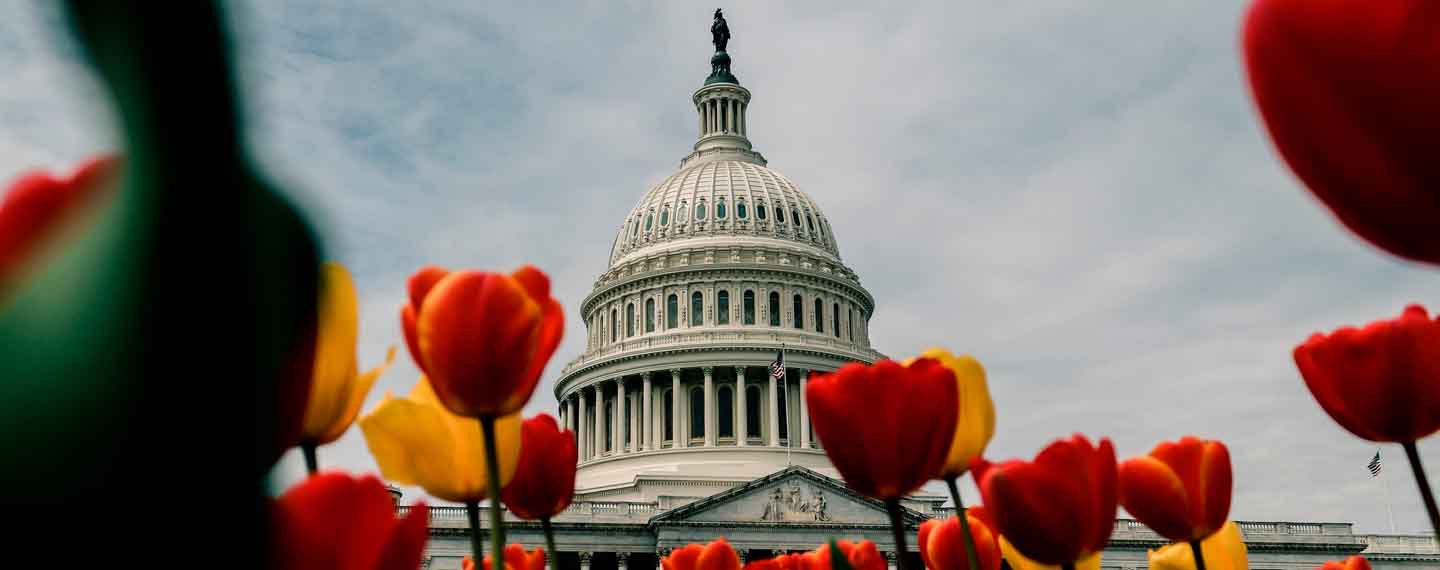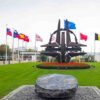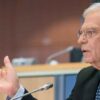That Monday, 20 January 2025, it was cold in Washington, as it tends to be at that time of year. The cold was a faithful reflection of the tension that gripped a rearming world, a world still embroiled in the various crises brought on by the war and the pandemic, where globalisation had clearly stalled and been regionalised. The Mall was packed with those wanting to attend the inauguration of the new US President. Vladimir Putin, in his customary office at the Kremlin, had his television tuned to watch and above all listen to the new occupant of the White House and the speech in which he would set out his agenda. Likewise Xi Jinping in Beijing. The election held on the preceding 8 November, involving neither Joe Biden, beset by ill-health, nor his failed Vice-President, Kamala Harris, had revealed a deeply divided country, rent almost in two. Only two of the protagonists from the three great powers remained from the crisis unleashed by the 2022 war, and it is not that they got on well with each other, but nor did they get on with the US, or with Europe, despite the fact that Emanuel Macron and Olaf Scholz continued to keep channels of communication with Putin and Xi open. ‘We put ourselves in Biden’s hands. Just as well we ensured that the EU made some progress in geopolitical and military terms, if not on defence policy’, Macron said to Scholz by telephone, while both, one in the Elysée Palace and the other in the Chancellery in Berlin, remained glued to their TV sets, and thought like good politicians not about where the world was heading, but where they could steer it, or at least try to.
Although he had declared victory in Ukraine, Putin knew that he and his country had been left severely weakened, and facing a NATO that, while it had not absorbed the rest of the invaded country, had closed ranks and had decided on forward defence, with permanent bases in the Baltic and the countries adjoining Russia, befitting a military cold war. Ukraine, or what remained of it de facto if not de jure, was still led by the indefatigable Volodymyr Zelenskiy, viewed as a national and international hero, victor by dint of resistance, helped by the ‘Borrell Plan’, a sort of European Marshall Plan for the reconstruction of the country; given its new neutral status, however, it lacked any real prospect of joining the EU, still less NATO. Putin, having survived an internal revolt (Biden had gone so far as to declare that a man like him should not rule and this, despite being immediately disowned by the White House, had strengthened Putin internally) had been re-elected President in March 2024, in the first round with a muzzled opposition, but with an abstention rate approaching 50%. He was already heading for a quarter of a century at the helm of the Russian Federation, and was starting to see the end looming, realising that it could never be normal, however normality might be understood.
China, where Xi Jinping had been given an open-ended extension at the end of 2022, continued extricating Russia from trouble, but had lost all confidence in Putin. ‘An incompetent’, Xi thought to himself. Xi remembered how in the midst of the Ukraine war, Biden and the EU had asked him to intercede with Putin to put an end to hostilities, something he had formally rejected but discreetly done. He had, however, paid attention to Biden when the latter had warned him, in a constructive tone, that ‘China should understand its economic future is much more closely tied to the West than to Russia’. He saw Russia as a strategic partner, but not as an ally.
As with the fall of communism and the break-up of the Soviet Union, China again felt let down by Moscow and drew its own lessons. Xi was perfectly aware of the fact that, apart from the nuclear arena –and there were many in Washington clamouring for new arms control agreements to include the three great powers in this regard– what would really continue to unsettle the US, and the new President was clear on this in his election campaign, was China’s rivalry as an economic power in all areas except global cultural prowess. Even that was a matter of years, not decades. But the West –what a comeback the term had made!– knew that it could not wage two cold wars, or maintain a hot peace on two fronts (based on permanent hybrid wars), simultaneously. And the priority for the US was China, the only country that could challenge its dominance.
The US alone was insufficient; it needed the support of the Europeans in this strategy. Macron and Scholz were perfectly well aware of this, but although the Europeans had long since ceased being so naïve about China, there was no single European policy towards Beijing. The two European leaders agreed on the need to retain the mixture of cooperation and competition with China that was so necessary for overcoming the recession, securing robust recovery of the European economy and avoiding a world split down the middle, although part of the rest of the world was trying to pursue a different course. Europe, after years of crisis, needed to grow. The US had been less affected by the Ukraine war than Europe, and it was time to make up ground with the plethora of European Commission initiatives designed to combat the effects of the pandemic –which continued in fits and starts– and the war. ‘We must revive the idea of European sovereignty, or at least autonomy, which was set back by the war’, the French leader said to his German counterpart, reverting to his obsession; NATO meanwhile had recovered, despite the advances in the EU, and Europe remained without any big tech titans.
Both Macron (who had only three years of his second and final term left and wanted to bequeath a European legacy) and Scholz asked themselves whether, once the Ukraine war had receded, albeit not overcome, it would not be necessary to deal with Russia in some way, to create a new European architecture of security and development worthy of the name, to generate stability and trust between all parties. A post-war agreement following the peace treaty. This was complicated by the fact that Putin had been charged with war crimes and crimes against humanity at the International Criminal Court, and that European purchases of Russian gas, oil and coal had fallen and would fall further with the new system adopted by the EU, something that would again benefit the US as a net exporter of fossil fuels. A significant part of the West’s economic and financial sanctions remained in place because, in reality, Putin had not yet renounced anything, except occupying the whole of Ukraine. But if Germany and France could resolve their differences in the wake of three wars, how could progress not be made towards reconciliation with Moscow? Particularly if it meant ensuring peace in Europe and prising Russia away from China. Enabling close relations between Russia and China had after all been one of the West’s great strategic errors. Perhaps the new US President would focus more on this, the two European leaders agreed.
Everyone fell silent. The new US President had just begun his inauguration speech.
It helps to think about leaders, how they will react, and what policies they will pursue over the medium term. Antonio Machado wrote that ‘neither tomorrow nor yesterday is written’. But focusing on a distant horizon can help to understand and act in the present. Forward planning does not consist of divining the future, or even the past, but rather constructing the future –or futures–. Macron understood this very well. He was a graduate of that school of thought.
Image: US Capitol. Photo: ElevenPhotographs



